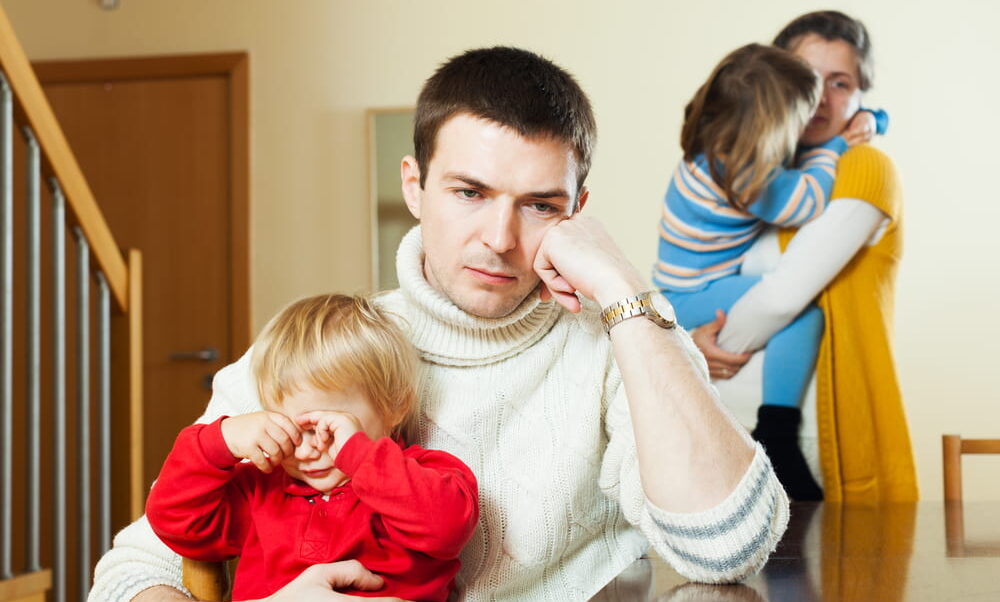
Parenting After Separation In Alberta: What To Expect
Divorce proceedings become more difficult when children are involved. It should be the primary objective of both parents to shield their children from high conflict situations. The research indicates that children who are protected from conflict during their separation are much more likely to have a healthy transition that those who are involved in the conflict and witness their parents animosity.
Navigating the legal system, adjusting to co-parenting and determining child support is overwhelming and can impact children in significant ways. Working with an experienced divorce and separation lawyer in Calgary will help you understand your rights, navigate the complex legal process, and advise what to expect with parenting after separation.
Once the divorce is finalized and all of the formalities are done, life will continue for both parties and for the children of the divorce. Here is some information on the mandatory steps for filing for divorce in Calgary if you have children.
The PAS Course
If you and your spouse have filed for divorce and you have children under the age of 16, you are required to take Alberta’s Parenting After Separation (PAS) course. This is course is a mandatory part of the divorce proceedings. It is a one-day course (6 hours) that is designed to help parents understand each of the roles they are responsible for after the divorce.
The Parenting After Separation course examines in detail:
- The separation and divorce process;
- The effects that these proceedings will have on children;
- Various techniques for communication between the two divorcing parties;
- Legal information that may affect either party or the children; and
- Problem-solving strategies each parent can apply in a variety of settings and circumstances.
This course teaches parents about the importance of working together in order to meet the children’s social, educational, health and emotional needs. The Parenting After Separation course encourages both parties to attend mediation meetings and to consider dispute resolution options.
The Parenting After Separation course is a free, online program available to anyone in Alberta.
The PASHC Course
If very little headway has been made or either party is still not satisfied with the information that has been passed on in the PAS course, a further seminar is offered that looks at high-conflict situations.
The Parenting After Separation For High Conflict Families (PASHC) course focuses on how to get each parent to emotionally disengage from each other and how to identify and renegotiate their boundaries.
During this course, parents are encouraged to:
- Develop a parenting plan that will reduce conflict between each parent; and
- Help minimize the contact each parent will have with the other.
Again, there is no cost for this course. Divorces that involve children can be very complicated and difficult for not only each party, but also for the children involved. The parenting after separation courses are specifically designed to help ease some of the stress and frustration during this difficult period.
Tips For Parenting After Separation
Parenting during a separation and after a divorce is difficult, but if you and your co-parent can work together for the best interest of the children, it can be less stressful for all parties involved. To successfully co-parent:
- Focus on the children’s well-being – first and foremost, discussions with the co-parent should be focused on what the children need. If this is a high-conflict situation, contact should be limited to pickups and drop-offs to avoid arguments.
- Separate your differences as a couple from parenting – while your ex may have been a terrible spouse, they may very well be a great parent. Separate your emotions about the divorce and any hard feelings about your ex so your child can continue having a relationship with the other parent.
- Avoid arguing in front of children – arguing with your ex in front of the children can stress them out and create trauma. Regardless of how you feel in the moment, refrain from fighting and discuss the situation when the children are not around to hear.
- Handle the situation with maturity – remember, you and your ex are the adults in this situation and children are influenced by the behaviours you model. Avoid bad-mouthing your ex in front of your children, remain amicable, and keep a child-focused approach.
Disclaimer: The content provided in the blog posts of Jones Divorce & Family Law is general information and should not be considered legal advice. Please contact a lawyer for legal advice tailored to your specific situation. All articles are current as of their original publication date.









